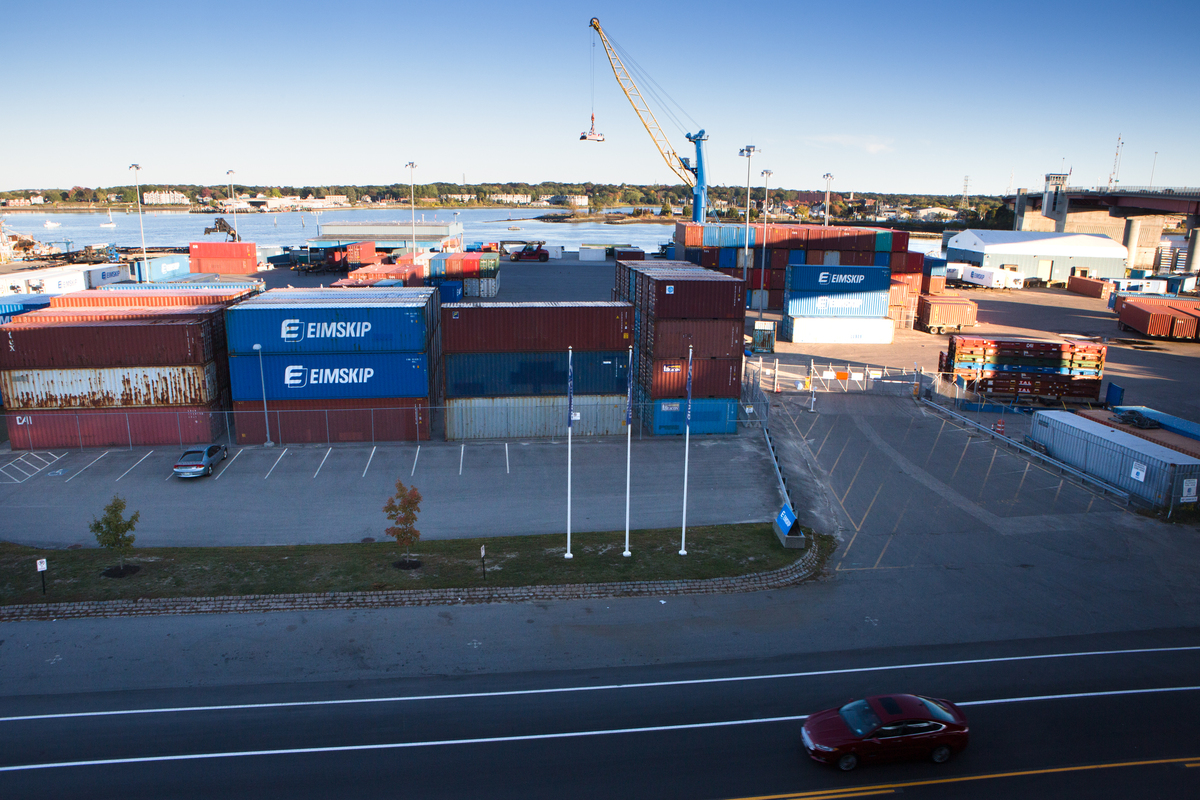The BDN Opinion section operates independently and does not set news policies or contribute to reporting or editing articles elsewhere in the newspaper or on bangordailynews.com
Tyler Lissy is a graduate student at the University of Maine’s School of Policy and International Affairs, concentrating in security and foreign policy. These are their views and do not express those of the University of Maine System or the University of Maine. This column is a guest feature in an ongoing series by the Maine chapter of the Scholars Strategy Network, which brings together scholars across the country to address public challenges and their policy implications.
Maine has long been known as a vacation destination, not necessarily as a global “power player.” But as melting Arctic ice reshapes trade routes and climate change redraws the world’s map, Maine stands at the front line of a new frontier.
Its ports are the closest U.S. gateway to Europe and the Arctic. Its economy depends on Canadian trade. And its universities are pioneering research that could define the next generation of coastal resilience and blue-economy innovation. Maine isn’t just a coastal state anymore, it’s a strategic state.
The political shake-up in Maine’s U.S. Senate race, spurred by outside challenges to current Sen. Susan Collins, has left voters searching for substance amid party infighting. With new senatorial candidates such as Graham Platner and Janet Mills reshaping the field, Maine’s voters are increasingly attuned to questions of direction and purpose. In this shifting landscape, the state’s foreign policy priorities offer a chance to redefine leadership, anchoring it in strategy rather than partisanship.
Nowhere is this more urgent than in Maine’s relationship with Canada, which remains its largest trade and investment partner. Canada accounts for nearly 40% of Maine’s exports and supports over 5,000 jobs through Canadian-owned businesses. Such deep integration demands proactive policy.
As global supply chains grow more fragile and tariff regimes shift, Maine would benefit from creating a risk review team with Canada to map key industries (energy, fisheries, forestry, and agriculture) and identify vulnerabilities before crises arise. By building resilience in its economic ties, Maine can secure the stability of its communities and the continuity of regional trade.
The same strategic thinking applies to the Arctic and North Atlantic. Maine’s geography provides an unmatched advantage: the Port of Portland is the closest deep-water U.S. port to Greenland and Iceland. As Arctic shipping routes open and international competition intensifies, Maine has an opportunity to become a hub of discovery and innovation.
Imagine research vessels leaving Portland harbor to track ocean currents and optimize northern trade routes, or structural engineers designing ice-resistant materials for next-generation ships. The University of Maine’s Arctic initiative, already collaborating with federal agencies on weather-sensing techniques and meltwater studies, demonstrates the state’s potential in that regard. Expanding this work by integrating the state’s flagship university with initiatives such as the Maine North Atlantic Institute could catalyze Maine’s role in cold-climate infrastructure and coastal resilience.
Regular North Atlantic and Arctic conferences hosted in Maine would also strengthen international cooperation. Earlier gatherings, such as the 2014 Maine International Trade Day, “Leadership in the High North,” and the 2019 Arctic Circle Assembly delegation led by Gov. Mills, laid the groundwork for dialogue among governments, businesses, and researchers. Building on those efforts through an annual Maine Arctic and North Atlantic Summit would elevate the state’s visibility as a convener of policy and commerce in the emerging Blue Economy.
Maine’s strategic advantage also lies in Indigenous diplomacy — a legacy and enduring state trait that strengthens community well-being and enhances foreign relations. The state’s Indigenous communities, representing 2.6% of its population, share similar cultural and environmental concerns with First Nations, Inuit, and Métis peoples across Canada. Yet Maine continues to grapple with incomplete recognition of tribal sovereignty. Aligning more closely with Canada’s approach, which integrates Indigenous leadership into Arctic governance, would not only strengthen Maine’s credibility but enhance its capacity to collaborate internationally on climate adaptation, resource management, and cultural exchange.
The broader global shifts at play make these choices more than theoretical. The accelerating pace of climate change, new patterns of trade, and the reemergence of Arctic competition mean that Maine’s position on the map is quickly gaining strategic weight. A forward-looking foreign policy rooted in resilience, innovation, and regional cooperation could transform the state’s standing from peripheral to pivotal.
That vision also requires leadership from citizens when considering their next vote, recognizing that Maine’s security and prosperity depend on treating its Arctic strategy, cross-border partnership, and Indigenous inclusion as foundational, rather than inessential.
